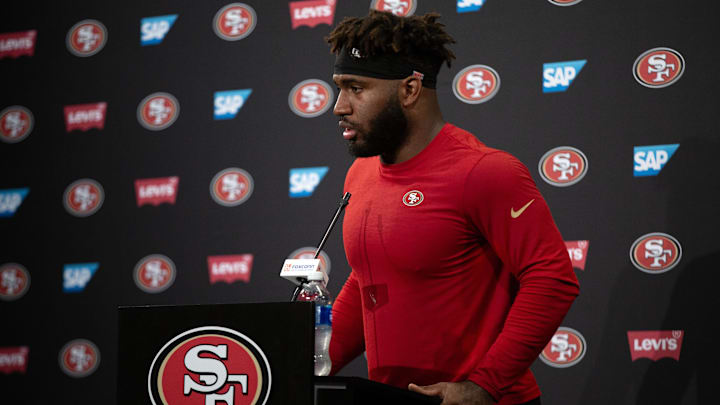The Philadelphia Eagles made the tough decision to trade veteran defensive end Bryce Huff after a subpar showing during the 2024 season. This was not a choice made on a whim by Howie Roseman and the front office.
Huff was a player the franchise had made a significant financial investment in, and, smartly, they were right to cut the cord when they did by trading the veteran to the San Francisco 49ers in exchange for a mid-round pick in the 2026 draft. Now, that decision is looking even smarter as Huff was a complete non-factor in his first regular season appearance for San Francisco.
Bryce Huff Still Looks Just as Disappointing As a Member of the 49ers
After a season in which he failed to meet expectations by a wide margin, Huff had all the motivation in the world to get off to a strong start in the Bay Area now that he is a member of the Niners. He did anything but that in San Francisco's 17-13 win over the Seattle Seahawks.
As noted by Brandon Lee Gotwin of Bleeding Green and Jeff Neiburg of The Philadelphia Inquirer, Huff played 50% of San Francisco's snaps in their season opener, and failed to record a single statistic. When adding PFF statistics into the fold, Huff's performance looks even worse as he had just one pressure in the contest.
This continued a disturbing trend from his final season with the Eagles, as Huff played in four games without recording a statistic in the box score during the 2024 campaign. After signing Huff to a three-year, $51 million contract with Philadelphia before the 2024 season, Roseman and the defending champions needed to find a way out of that deal, and the Niners threw them a much-welcomed life preserver.
The situation with Huff and his subsequent trade to San Francisco is a reminder of the negative impact that one bad contract can have on a roster. The Eagles could not continue to justify paying the remainder of the $51 million deal they had signed Huff to. This left them with no options but to agree to trade for lesser draft compensation than they would have previously considered.
In the end, however, acquiring a mid-round pick for a player who continues not to meet expectations on the field is better than continuing to roster that veteran due to contractual obligations alone.
